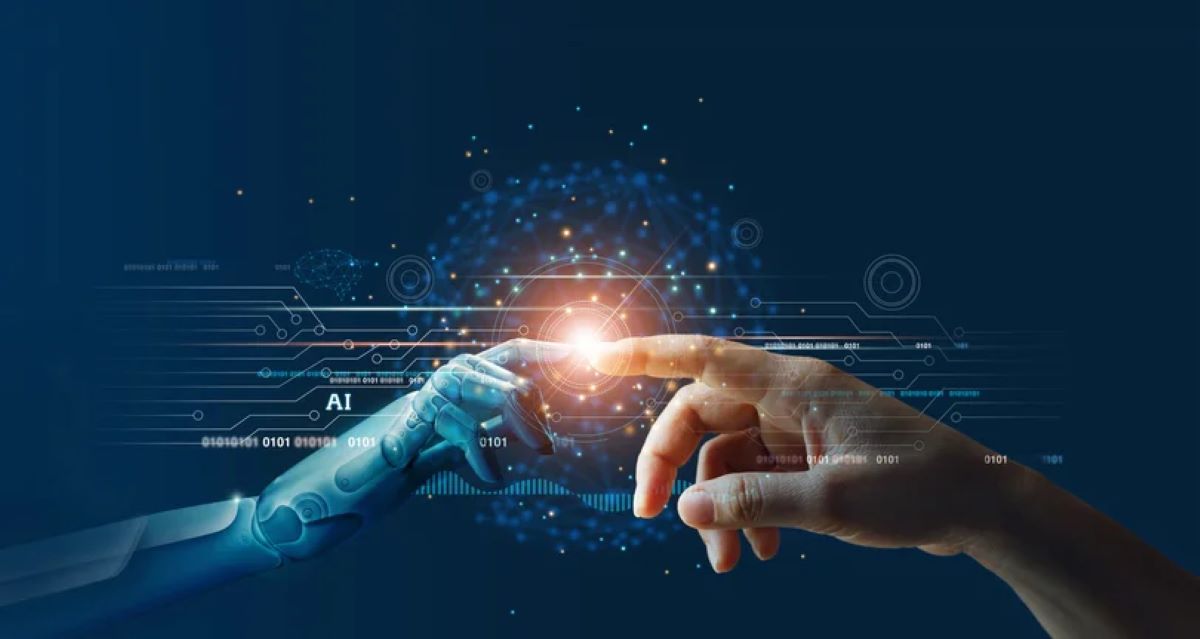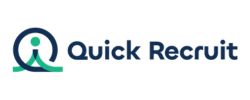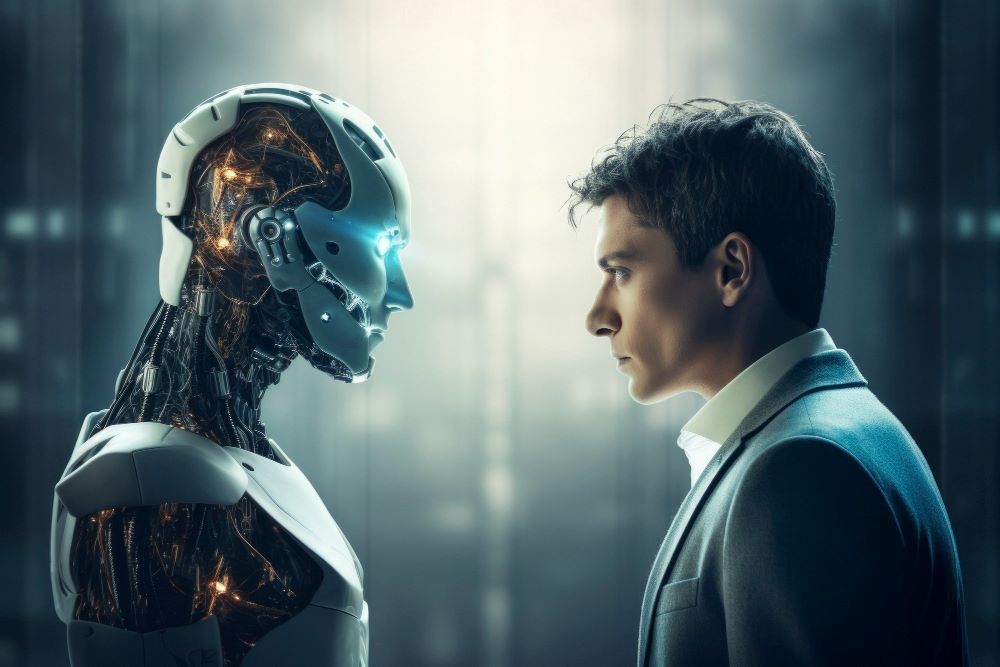Introduction
Artificial Intelligence (AI) is revolutionizing numerous industries, and the recruitment sector is no exception. AI recruiting is streamlining processes, from resume screening to interview scheduling, making hiring faster and more efficient. Companies are leveraging AI-powered recruitment tools to enhance decision-making and improve candidate experiences.
However, this growing reliance on AI raises concerns: Will AI replace human recruiters and HR professionals? Many fear that automation might render traditional recruiting roles obsolete. The reality, however, is far more nuanced. In this article, we explore the rise of AI recruiting, its benefits, limitations, and how human recruiters continue to play an indispensable role in hiring decisions.
The Rise of AI in Recruitment
AI is transforming hiring in several ways, making recruitment more data-driven and efficient. AI recruitment software automates tasks, allowing HR professionals to focus on strategic decision-making and candidate engagement.
Key AI-Powered Recruitment Tools
- Resume Screening: AI-powered applicant tracking systems (ATS) analyze large volumes of resumes, identifying candidates whose skills and experience align with job descriptions. This automation significantly reduces hiring time. According to Forbes, companies like Salesforce use AI to filter candidates more efficiently and improve hiring quality. Additionally, Harvard Business Review discusses how AI helps reduce hiring biases and improve equity in recruitment.
- AI Chatbots: Conversational AI is transforming initial candidate interactions. AI chatbots answer candidate queries, schedule interviews, and guide applicants through the hiring process. This improves engagement and enhances the candidate experience. Infosys BPM highlights how chatbots reduce recruiter workload and ensure prompt responses.
- Predictive Analytics: AI uses historical hiring data and machine learning models to predict candidate success and cultural fit. It provides recruiters with insights that enable data-driven hiring decisions. AI can also forecast workforce trends, helping companies plan for future hiring needs. Gartner emphasizes that AI-driven predictive analytics is revolutionizing HR strategies.
Benefits of AI in Recruitment
- Efficiency: AI automates tedious administrative tasks, significantly reducing hiring time and improving recruiter productivity.
- Bias Reduction: AI reduces unconscious biases in hiring by focusing purely on qualifications and skills, promoting workplace diversity.
- Cost Savings: Automating repetitive tasks saves time and operational costs. AI-driven hiring strategies cut down expenses related to prolonged recruitment cycles and human errors.
Can AI Fully Replace Human Recruiters ?

Despite AI’s advantages, it has notable limitations that prevent it from completely replacing human recruiters.
Limitations of AI in Recruitment
- Lack of Human Intuition: AI cannot assess soft skills, emotional intelligence, or cultural fit as effectively as humans. A candidate’s potential, motivation, and adaptability often require human judgment. MIT Sloan highlights the importance of combining AI assessments with human intuition in hiring decisions.
- Algorithmic Bias: While AI can reduce biases, it can also reinforce them if trained on biased data. SHRM points out that AI models must be regularly audited to ensure fairness in hiring.
- Inability to Build Relationships: AI lacks the emotional intelligence to establish rapport with candidates, a crucial aspect of recruitment that builds trust and fosters engagement.
The Hybrid Model: AI Assisting Recruiters
Rather than replacing recruiters, AI is best used as an assistive tool. The ideal approach is a hybrid model where AI automates administrative tasks, allowing human recruiters to focus on relationship-building and final hiring decisions. AI enhances efficiency, but human oversight remains essential in ensuring ethical and effective hiring practices.
The Impact of AI Recruiting on Job Seekers
AI has reshaped how candidates interact with employers, affecting resume shortlisting and interview processes.
How AI Screens Resumes
AI recruitment software evaluates resumes based on specific keywords, formatting, and structured data. Many companies use applicant tracking systems (ATS) to filter out resumes that do not match predefined criteria.
Tips for Job Seekers
- Optimize Your Resume: Ensure your resume includes relevant keywords from the job description.
- Use Standard Formatting: Avoid complex designs that AI systems may struggle to read.
- Personalize Applications: While AI handles initial screenings, human recruiters still assess top candidates, so tailoring applications remains crucial.
Ethical Concerns: Algorithmic Bias and Fairness
AI is only as good as the data it is trained on. If hiring data includes biases, AI may perpetuate discriminatory hiring practices. Infosys BPM emphasizes the importance of transparency in AI recruitment processes to prevent such biases. Brookings Institution also warns about the potential risks of AI-driven discrimination in hiring.
The Future of AI in Hiring
AI-driven hiring is evolving rapidly, with new trends shaping the future of recruitment.
Emerging AI Recruitment Trends
- AI-Driven Interviews: AI tools analyze candidate responses and facial expressions during video interviews to assess suitability. However, this raises concerns about accuracy and ethical considerations. The Guardian discusses the potential pitfalls of AI-powered interview assessments.
- Skills-Based Hiring: AI is helping employers shift from traditional qualification-based hiring to skills-first recruitment, promoting a more diverse workforce.
- Data-Driven Recruitment: AI enables recruiters to make data-backed decisions by analyzing hiring trends and candidate performance predictions.
AI’s Role in Diversity and Inclusion

AI recruitment software can help reduce biases by assessing candidates based on objective data. However, ensuring diversity requires human oversight to monitor AI decisions and maintain fair hiring practices.
Balancing AI and Human Involvement
To leverage AI effectively, businesses should:
- Use AI for repetitive tasks while ensuring human validation in critical decisions.
- Continuously update AI algorithms to prevent biases.
- Focus on ethical hiring practices that combine AI efficiency with human judgment.
Conclusion
AI in recruitment is a powerful tool that enhances efficiency, reduces biases, and lowers costs. However, it cannot fully replace human recruiters, as hiring involves intuition, emotional intelligence, and ethical considerations.
A balanced approach where AI assists but human recruiters lead hiring decisions is the best strategy for modern recruitment. Both job seekers and recruiters must adapt to AI advancements while ensuring a people-centric hiring process.
One platform that exemplifies this balanced approach is Quick Recruit. As India’s leading AI-driven recruitment platform, Quick Recruit leverages AI-powered assessments, team collaboration tools, and automated recruitment workflows while ensuring human oversight remains at the core of hiring decisions. By integrating cutting-edge AI with human expertise, Quick Recruit helps businesses streamline hiring without compromising on quality, fairness, or candidate experience.
To stay ahead in the evolving job market, recruiters should embrace AI tools like Quick Recruit while upholding human-driven hiring values. Keeping up with AI recruiting trends will be essential for businesses aiming to optimize their hiring strategies in the digital age.

